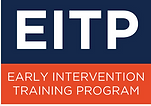AEIOU:
An Integrated Approach to
Pediatric Feeding
Comprehensive Professional
Training Program
Whether you are a new therapist seeking to expand your knowledge or an experienced therapist aiming to refine your skills, this course is designed to transform your practice. It will challenge you to think holistically to develop family-centered, compassionate, and individualized intervention plans for infants and young children with mild to complex etiologies. AEIOU - Acceptance, Exposure, Independence, Observation, and Understanding – is a framework for addressing pediatric feeding disorders that prioritizes child autonomy, family relationships, and authentic connections. It is an integrated, evidence-based, and responsive feeding approach that is trauma-informed and neurodiversity-affirming.

Next Course Starts
In April
Registration Opens Feb 1
Why Choose AEIOU?


Course Agenda
Session #1
Live Broadcast Online
(3 ½ hours with 15 min break)
-
Foundations and Introduction to AEIOU; Support from the Literature
-
Video Case Study: Assessment and Treatment Planning-Applying the 5 Factors: Acceptance,
Exposure, Independence,
Observation, Understanding
Session #1 Self-Paced Modules
(3 hours, 35 minutes)
-
Developmental Progression of Feeding Skills (45 min)
-
Review of Chewing; Hands-On Exercise (19 min)
-
Factors that Limit Successful Feeding
-
Prematurity, Respiratory/Cardiac Issues, Medication Effects (15 min)
-
Craniofacial Issues, Tongue/Lip Ties (31 min)
-
Gastrointestinal Issues Part 1 (14 min)
-
Gastrointestinal Issues Part 2 (21 min)
-
Allergy and Food Intolerance Issues (9 min)
-
Environmental Issues and Stress (10 min)
-
When to Treat: Priorities and Contraindications (24 min)
-
How to Treat: The Comprehensive 5-Step Plan (17 min)
-
Quiz #1 (10 mi
Session #3
Live Broadcast Online
(3 hours with 15 min break)
-
Merry Mealtime™ Guide: Practitioner Manual and Implementation
-
AEIOU REP™ Model- The Responsive Exploration Pathway
-
Therapy Meals; Video Presentation of Treatment; Introduction to Food Aversion
Session #3 Self-Paced Modules
(3 hours, 22 minutes)
-
Sensory Processing/Food Exploration (30 min)
-
Expanding Taste Repertoire and Texture Acceptance (40 min)
-
Nutritional Issues: Weight Gain vs. Brain Gain (39 min)
-
Tube Weaning Case Study (15 min)
-
Oral-Motor Treatment: Achieving Success in 5 Steps (32 min)
-
Cups and Straws (31 min)
-
Quiz #3 (15 min)
Session #2
Live Broadcast Online
(3 hours with 15 min break)
-
Video Case Study-Applying the 5 Factors: Acceptance, Exposure, Independence, Observation, Understanding
-
Q&A; Group Discussion
-
Treating the Whole Child; Family Centered Care
-
Group Discussion
Session #2 Self-Paced Modules
(3 hours, 11 minutes)
-
Attachment, Communication, Control (24 min)
-
Addressing Mealtime Interactions & Behavior; Caregiver Buy-in and Effective Parent Training (35 min)
-
Establishing the Mealtime Environment: Merry Mealtime Guide™ (49min)
-
Parent Testimonial Video (9 min)
-
Seating/Positioning/Self-Feeding: Achieving Autonomy and Independence (44 min)
-
Evaluation and Progress Report Samples (10 min)
-
Q&A Newsletter (10 min)
-
Quiz #2 (10 min)
Session #4
Live Broadcast Online
(3 ½ hours with 15 min break)
-
Video Presentations of Treatment/Case Studies (Sensory Food Aversion, Oral-Motor, Tube
Dependency)
-
Videos Case Studies Continued
-
Q&A; Group Discussion
Session #4 Self-Paced Modules
(2 hours, 52 minutes)
-
Chewing Compilation Video (8 min)
-
Tricks With Tools: Tips From My Toolbox, Resources, and More (49 min)
-
Bonus Materials (40 min)
-
Extend Your Learning Modules (1hr, 15 min)
-
AEIOU Final Course Evaluation


The Illinois Early Intervention Training Program has approved this event for 21.5 hours of EI credential credit in the area of Intervention and 3.5 hours in the area of Atypical Development.
Regular
Tuition
$575
Learning Objectives
-
Identify evidence for a responsive feeding approach that integrates the literature on attachment, communication, trauma, autonomy, intrinsic motivation, wellbeing, nutrition, co-regulation and safety.
-
Develop assessment and treatment strategies using a 5-factor framework that addresses a wide range of influences that limit successful feeding in infants and young children.
-
Formulate strategies to achieve parent buy-in for home carryover, promote positive parent-child interaction, and help children participate independently in social mealtime routines.
-
Identify contraindications for oral feeding and describe a 5-step treatment plan for advancing pre-feeding skills in non-oral feeders.
-
Assess signs of distress and/or disengagement during feeding and know how and when to proceed.
-
Develop and implement treatment plans for oral feeding that expand taste repertoire and texture progression by incorporating strategies for the mealtime environment, seating/positioning, and oral-motor, sensory, and motor deficits.
Target Audience
SLPs, OTs, PTs, Dieticians, Physicians, Educators.
Appropriate for other medical and allied health professionals working with infants and children with pediatric feeding disorders.
Instructional Methods
Live and Recorded Lecture with Powerpoint/Multimedia Presentation; Videos; Case Studies; Question and Answer; Private Community/Discussion/Sharing Forum
Special Needs Requests
For Special Needs Requests, please contact Nina Ayd Johanson directly at nina@foodsmartkids.com
Bernadette, SLP in New Jersey
“This is the best course that I have attended in my 45 years of practicing!! So often we attend courses but we don't learn how to implement the strategies we have learned. This course went above and beyond in terms of providing strategies to improve our therapy. Thank you so much!."
Leigh, SLP in MI
"I have taken many courses in my 20 years as an SLP, and this is one of the absolute best i have ever attended. It is one of the few (maybe even the only) that spent time talking about the impact of the family/social/community system on a child and how to navigate that for successful intervention. Nina's approach is well balanced, compassionate, and respectful of the family and the child, and because of that it works!"
Emma, OT in OH
"Without a doubt one of the, if not the, most comprehensive and transferable courses I have taken in my career. The knowledge and strategies are presented in a way that allow for immediate carryover in practice. This course is an absolute must for any pediatric feeding therapist, and also has value for any individual working with the pediatric population. This course highlights the importance of evaluating and supporting the caregiver in the child's feeding journey, something that other popular models fail to acknowledge."


